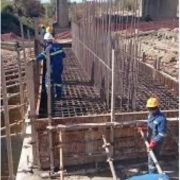Finance Minister Mthuli Ncube presented a ZWL$421.6 billion national budget for 2021 yesterday themed Building Resilience and sustainable Economic Recovery were the economy expected to grow by 7.4% after a 4.1% contraction in 2020.
In the budget Government plans to spend ZWL$421.6bn in 2021, against ZWL$178.5bn thisyearZWL$131.6bn earmarked for capital projects, 31% of budget and 5% of GDP.
The two education ministries get the biggest allocation, ZWL$69.5bn. This is followed by Health, with ZWL$54.7bn. This is 13% of the budget, higher than last year’s 10%, but still short of the Abuja Declaration’s 15% recommended threshold.
Among some major highlights, the Office of the President and Cabinet received an allocation of $14.26 billion, parliament of Zimbabwe $7.1 billion, Public Service labour and social welfare $6.9 billion, Defence and War Veterans $23.7 billion, Industry and Commerce $2.3 billion.
Download the full 2021 budget statement here
Health Ministry was allotted $54.7 billion, Primary and Secondary Education Ministry received $55.2 billion and Higher education Ministry got $14.3 billion.
A projected 150 000 formal jobs are expected to be recovered after having been lost due to Covid-19 pandemic.
The Health Ministry was allotted $54.7 billion, Primary and Secondary Education $55.2 billion and Higher education $14.3 billion.
The Agriculture Ministry received $46.2 billion, Mines and Mining Development $1.3 billion, Environment and Tourism $1.7 billion, among other key allocations.
The tax grip was tightened effecting an upward review of the Pay As You Earn Tax free threshold from $5000 to $10 000.
Download the full 2021 Budget statement here
The Intermediated Mobile Money Transfer Tax commonly referred to as the 2 % tax free threshold was increased from $300 to $500.
The Youth Employment Tax Credit was increased from $500 to $1500 while the Forex Corporate Tax payments to take into account RBZ prescribed retention or liquidation thresholds was also increased.
An upward review of the bonus Tax-Free Threshold was raised from $5 000 to $25 000 effective 1 November 2020.
Ncube also introduced a simplified tax regime for self-employed professionals while increasing presumptive tax to reflect market fundamentals alongside the introduction of a Cannabis Levy, chargeable on the value of exports, at varied rates ranging from 10 to 20% in line with the level of processing.
Excise Duty on Tobacco and Alcoholic Beverages alignment of taxes on fuel (Petrol & Diesel) were also affected.
Property owners were also directed to collect US$30 per every partitioned space used by SMEs in running their businesses.









Comments